FOOD
30 Fruits That People Are Commonly Allergic To
Published
8 months agoon

Shutterstock
Fruits are a delicious and essential part of a healthy diet, but for some individuals, they can also be a source of allergic reactions. Fruit allergies can range from mild oral allergy syndrome to severe anaphylactic reactions. Understanding which fruits are most likely to cause allergies can help individuals avoid potentially harmful reactions. This guide explores 30 fruits that are commonly associated with allergic responses and provides detailed information on the symptoms and precautions for each. By being informed, those with fruit allergies can better manage their diet and maintain their health.
Apples

Shutterstock
Apples are a common cause of allergic reactions, especially in individuals with birch pollen allergies. The protein in apples can cause oral allergy syndrome, leading to itching and swelling in the mouth and throat. Cooking apples can sometimes reduce the allergenic proteins, making them safer to eat for some people. However, severe reactions can occur in some cases, necessitating avoidance of the fruit altogether.
Bananas

Shutterstock
Banana allergies are often linked to latex allergies due to similar proteins found in both. Symptoms can include itching, swelling, and even more severe reactions like anaphylaxis. Some individuals may tolerate cooked bananas better than raw ones. It is important for those with banana allergies to be cautious and read food labels carefully.
Strawberries

Shutterstock
Strawberries are known to cause allergic reactions in some individuals, particularly children. Common symptoms include hives, itching, and swelling around the mouth and lips. The allergenic proteins in strawberries can sometimes cause more severe reactions like difficulty breathing. People with strawberry allergies should avoid both fresh and processed strawberries.
Kiwis

Shutterstock
Kiwi allergies are relatively common and can cause a range of symptoms from mild to severe. These can include itching and swelling in the mouth, lips, and throat. Some people might also experience gastrointestinal symptoms like stomach pain and diarrhea. Severe reactions, though rare, can include anaphylaxis, requiring immediate medical attention.
Peaches

Shutterstock
Peach allergies often cause oral allergy syndrome, leading to itching and swelling of the mouth and throat. The skin of the peach is usually more allergenic than the flesh. Cooking peaches can sometimes reduce the allergenic proteins. However, in severe cases, individuals might experience systemic reactions and should avoid the fruit completely.
Plums

Shutterstock
Plum allergies can cause oral allergy syndrome, similar to other stone fruits. Symptoms include itching and swelling in the mouth and throat. Some individuals might also experience skin reactions like hives. As with other fruit allergies, severe reactions can occur, so those affected should avoid plums and related products.
Cherries

Getty
Cherry allergies can result in symptoms ranging from mild oral allergy syndrome to more severe reactions. Common symptoms include itching and swelling of the mouth, lips, and throat. In some cases, individuals may also experience skin reactions such as hives. Cooking cherries may reduce the allergenic proteins, making them safer for some people.
Oranges

Shutterstock
Oranges can cause allergic reactions, especially in individuals with citrus allergies. Symptoms typically include itching and swelling in the mouth and throat, as well as skin reactions. Some people may also experience gastrointestinal issues like stomach pain. Severe reactions are less common but can occur, necessitating careful avoidance of oranges and related products.
Grapes

Shutterstock
Grape allergies can lead to a variety of symptoms, including oral allergy syndrome with itching and swelling of the mouth and throat. Some individuals might also experience skin reactions like hives. In rare cases, more severe reactions such as anaphylaxis can occur. People with grape allergies should avoid fresh grapes, raisins, and grape juice.
Mangoes

Shutterstock
Mango allergies can cause symptoms ranging from mild oral allergy syndrome to severe reactions. Common symptoms include itching and swelling of the lips, mouth, and throat. The skin of the mango contains urushiol, the same compound found in poison ivy, which can cause contact dermatitis. Individuals with mango allergies should avoid both the fruit and any products containing mango.
Pineapples

Shutterstock
Pineapple allergies can trigger a range of symptoms from oral allergy syndrome to more severe reactions. Common symptoms include itching and swelling of the mouth and throat, as well as skin reactions like hives. Some people may also experience gastrointestinal symptoms such as nausea and diarrhea. Severe reactions, though rare, can occur and require medical attention.
Melons

Shutterstock
Melon allergies, including reactions to cantaloupe and watermelon, are often associated with oral allergy syndrome. Symptoms include itching and swelling in the mouth and throat. Some individuals may also experience skin reactions and gastrointestinal issues. Severe allergic reactions can occur, so those affected should avoid all types of melons.
Papayas

Shutterstock
Papaya allergies can cause symptoms ranging from mild to severe. Common reactions include itching and swelling in the mouth and throat, as well as skin reactions like hives. Some people may also experience gastrointestinal symptoms such as stomach pain and diarrhea. Severe reactions can include anaphylaxis, requiring immediate medical attention.
Figs

Shutterstock
Fig allergies are less common but can still cause significant reactions. Symptoms often include itching and swelling of the mouth and throat. Some individuals might also experience skin reactions and gastrointestinal issues. Severe allergic reactions, though rare, can occur and necessitate avoidance of figs and related products.
Passion Fruit

Shutterstock
Passion fruit allergies can lead to symptoms ranging from mild to severe. Common reactions include itching and swelling of the mouth and throat. Some individuals may also experience skin reactions like hives and gastrointestinal symptoms. In rare cases, severe allergic reactions such as anaphylaxis can occur, requiring immediate medical attention.
Pomegranates
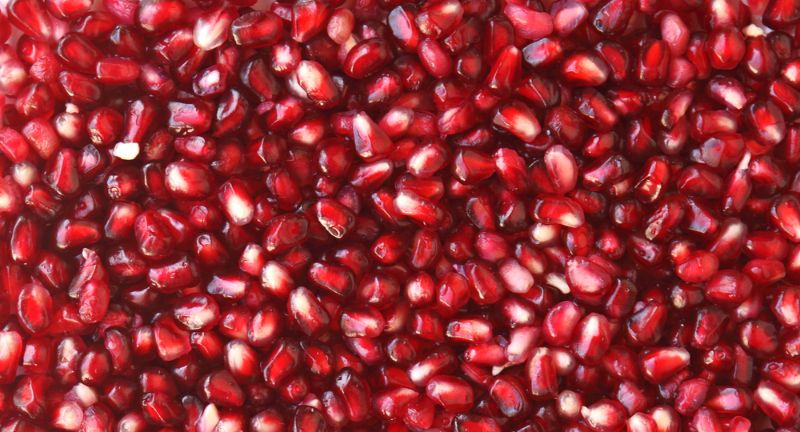
Shutterstock
Pomegranate allergies can cause a range of symptoms from mild to severe. Common reactions include itching and swelling of the mouth and throat, as well as skin reactions like hives. Some people may also experience gastrointestinal issues such as stomach pain. Severe allergic reactions, though rare, can occur and necessitate avoidance of pomegranates and related products.
Apricots

Shutterstock
Apricot allergies can trigger symptoms similar to other stone fruit allergies. These include itching and swelling in the mouth and throat. Some individuals might also experience skin reactions like hives and gastrointestinal symptoms. Severe reactions can occur, so those affected should avoid apricots and products containing them.
Pears
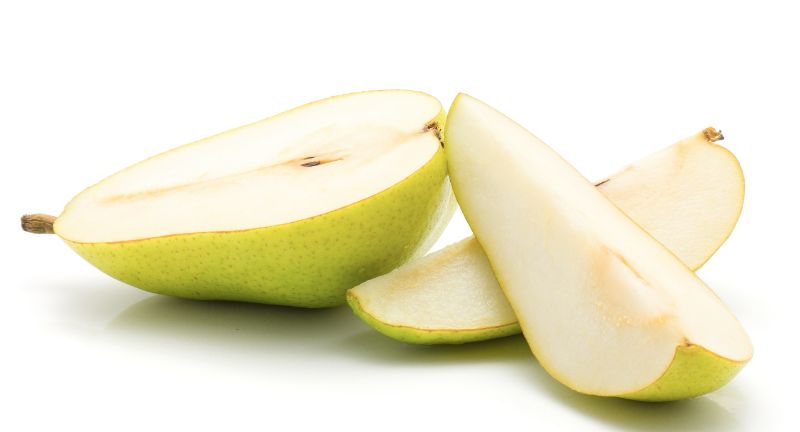
Shutterstock
Pear allergies are often related to birch pollen allergies, causing oral allergy syndrome. Symptoms include itching and swelling of the mouth and throat. Some individuals might also experience skin reactions like hives. Cooking pears can sometimes reduce the allergenic proteins, making them safer for some people.
Blueberries
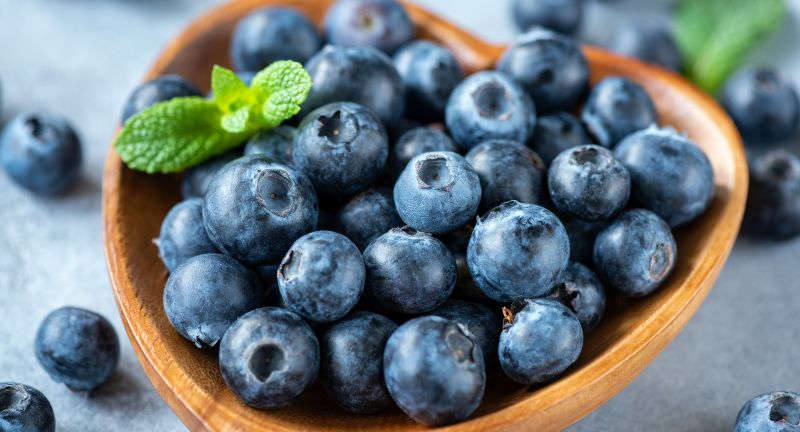
Shutterstock
Blueberry allergies are rare but can cause a range of symptoms. These include itching and swelling in the mouth and throat, as well as skin reactions like hives. Some people might also experience gastrointestinal issues such as stomach pain. Severe allergic reactions, though rare, can occur and necessitate avoidance of blueberries and related products.
Raspberries

Shutterstock
Raspberry allergies can lead to symptoms ranging from mild to severe. Common reactions include itching and swelling of the mouth and throat. Some individuals may also experience skin reactions like hives and gastrointestinal symptoms. Severe reactions, though rare, can include anaphylaxis, requiring immediate medical attention.
Blackberries

Shutterstock
Blackberry allergies are uncommon but can cause significant reactions. Symptoms often include itching and swelling of the mouth and throat. Some individuals might also experience skin reactions and gastrointestinal issues. Severe allergic reactions, though rare, can occur and necessitate avoidance of blackberries and related products.
Lemons

Shutterstock
Lemon allergies can cause symptoms such as itching and swelling of the mouth and throat. Some individuals may also experience skin reactions like hives. In rare cases, more severe reactions like anaphylaxis can occur. Those with lemon allergies should avoid fresh lemons and any products containing lemon.
Limes

Shutterstock
Lime allergies can trigger a range of symptoms, including itching and swelling in the mouth and throat. Some individuals might also experience skin reactions and gastrointestinal issues. Severe allergic reactions, though rare, can occur and require medical attention. Those affected should avoid limes and products containing lime.
Avocados
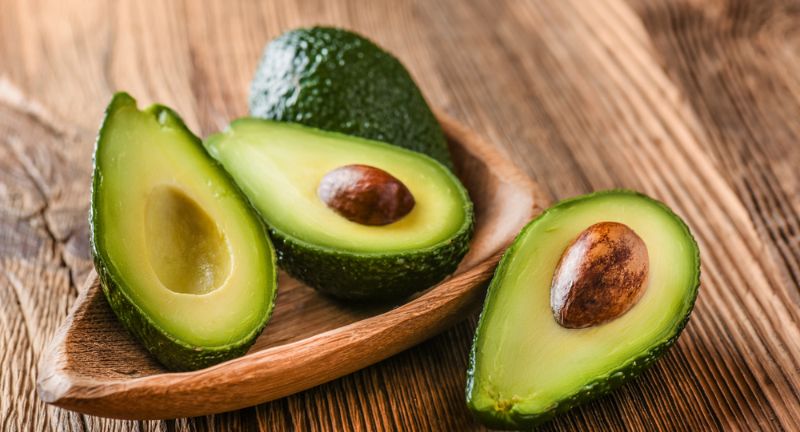
Shutterstock
Avocado allergies are often linked to latex allergies due to similar proteins. Symptoms can include itching, swelling, and gastrointestinal issues. Some individuals may also experience more severe reactions like anaphylaxis. People with avocado allergies should avoid both fresh avocados and products containing avocado.
Tomatoes
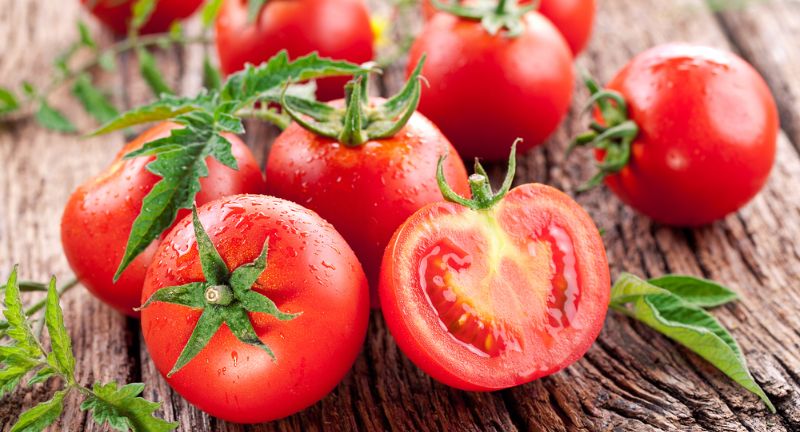
Shutterstock
Tomato allergies can cause a range of symptoms from mild to severe. Common reactions include itching and swelling in the mouth and throat. Some individuals might also experience skin reactions like hives and gastrointestinal issues. Severe allergic reactions, though rare, can occur and necessitate avoidance of tomatoes and related products.
Coconuts

Shutterstock
Coconut allergies are relatively rare but can cause significant reactions. Symptoms often include itching and swelling of the mouth and throat. Some individuals might also experience skin reactions and gastrointestinal issues. Severe allergic reactions, though rare, can occur and necessitate avoidance of coconuts and related products.
Dates

Shutterstock
Date allergies can cause symptoms ranging from mild to severe. Common reactions include itching and swelling of the mouth and throat, as well as skin reactions like hives. Some people may also experience gastrointestinal issues such as stomach pain. Severe allergic reactions, though rare, can occur and necessitate avoidance of dates and related products.
Lychees
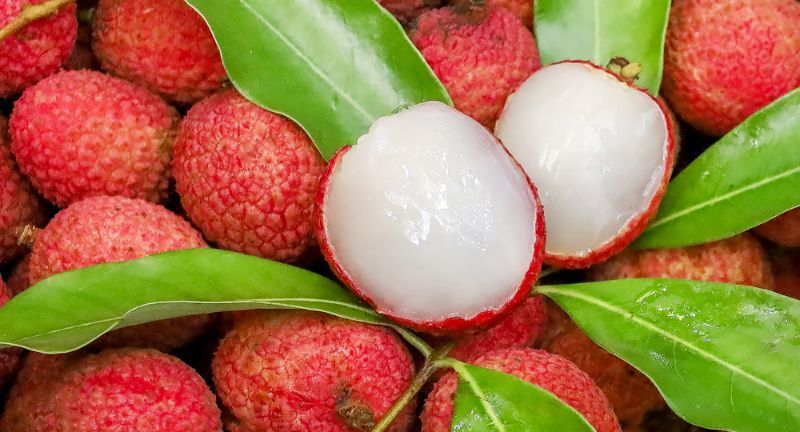
Shutterstock
Lychee allergies are uncommon but can cause significant reactions. Symptoms often include itching and swelling of the mouth and throat. Some individuals might also experience skin reactions and gastrointestinal issues. Severe allergic reactions, though rare, can occur and necessitate avoidance of lychees and related products.
Dragon Fruit

Shutterstock
Dragon fruit allergies are rare but can cause a range of symptoms. These include itching and swelling in the mouth and throat, as well as skin reactions like hives. Some people might also experience gastrointestinal issues such as stomach pain. Severe allergic reactions, though rare, can occur and necessitate avoidance of dragon fruit and related products.
Guavas

Shutterstock
Guava allergies can cause symptoms ranging from mild to severe. Common reactions include itching and swelling of the mouth and throat. Some individuals might also experience skin reactions like hives and gastrointestinal symptoms. Severe reactions, though rare, can occur and necessitate avoidance of guavas and related products.
Conclusion

Shutterstock
Managing fruit allergies requires awareness and careful dietary choices. By recognizing the common symptoms and knowing which fruits are most likely to cause reactions, individuals can take proactive steps to avoid allergens. Always consult with a healthcare professional for personalized advice and consider allergy testing for accurate identification. With the right precautions, it’s possible to enjoy a varied and nutritious diet safely. Stay informed, stay safe, and enjoy the benefits of a healthy lifestyle.
Related Topics:

More From Lifestylogy
-


Oreo and Ritz Team Up For New Tasty Treat
-


Coin Shortage Could Lead to Free Chick-fil-A Food in One…
-


Ben & Jerry’s Releasing Dog-Friendly Desserts
-


Applebee’s Launches $1 October Cocktail With Wearable Fangs
-


15 Dining Etiquette Rules That Are Going Out of Fashion
-


Kit Kat Unveiling New Mint-Chocolate Flavor
-


Eating Chili Peppers May Lead to a Longer Life
-


Five Ways to Beat Sugar Addiction
-


Girl Scouts Announce New Delicious Cookie Flavor